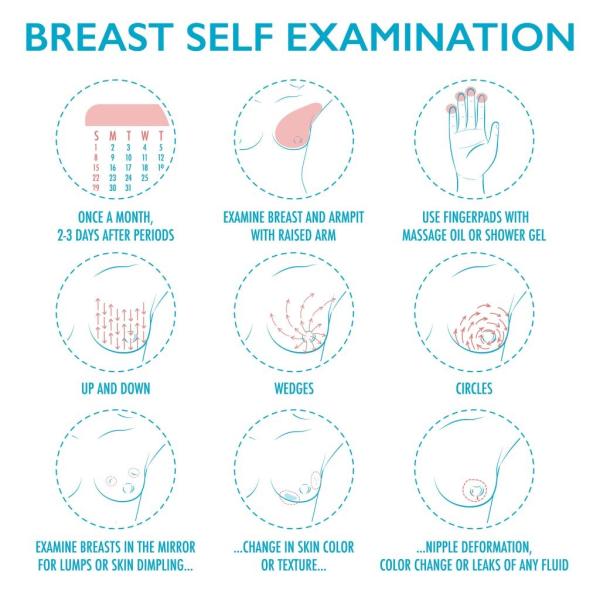What should I do if I find a lump while performing a monthly breast self-exam? | |||
 1,326 1,326  0 0  0 0 | |||
| Finding a lump during a breast self-exam doesn't automatically mean it's cancerous, but it's crucial to seek professional medical attention immediately. Schedule an appointment with your doctor or gynecologist as soon as possible to have the lump evaluated. They will perform a thorough examination and may order further tests, such as a mammogram or ultrasound, to determine the nature of the lump and provide an accurate diagnosis and appropriate treatment plan. Do not delay seeking medical advice.
Finding a lump during a breast self-exam doesn't automatically mean it's cancer, but it's crucial to see a doctor as soon as possible. Don't panic, but do schedule an appointment promptly.
Your doctor will likely conduct a clinical breast exam and may order further tests like a mammogram or ultrasound to determine the nature of the lump. Remember, many breast lumps are benign, but it's vital to get them checked by a medical professional. Tags: Breast Exam Breast Exams Breast Lump Breast Self-Exam Breast Tissue Clinical Breast Exam Genetic Aspect Mammograms Noncancerous Physician | |||
| |||
| | |||
|
 3350
3350 